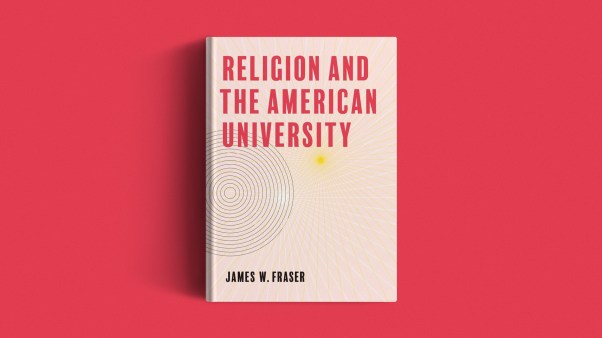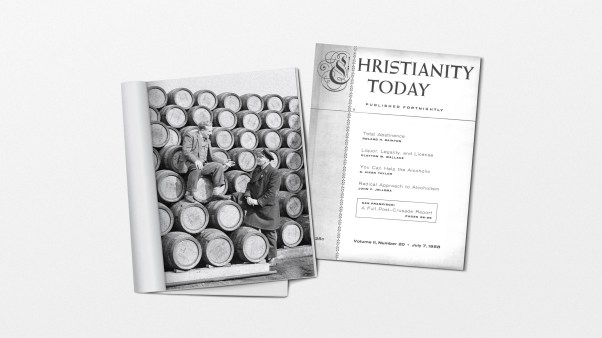Ray Comfort, a New Zealand-born evangelist and founder of Living Waters, an evangelism training ministry, has never been shy about his faith, even to the point of confrontation. He has publicly debated atheists and doubters, and has even challenged Darwinian biologist (and noted atheist) Richard Dawkins to a debate, offering $20,000 for such an event. (Dawkins has declined, reportedly insisting on $100,000.) Comfort is also co-host (with Kirk Cameron) of The Way of the Master television.

I'm a white, middle class, married with two kids, Christian, college-educated, home-owning woman, and I am a minority.
That may not make much sense to you at first glance. But here's the catch:
I'm a Christian, and I live in Utah.
It's strange to identify with a faith tradition that holds majority rule and influence in this country and yet be a minority in my state of residence. According to the most recent census, 62.2 percent of Utah's population is composed of members of the Church of Jesus Christ of Latter-day Saints, or Mormon, in shorthand. The Salt Lake valley exists and is a thriving metropolis of commerce and culture because of the Mormon pioneers who made the trek to Utah from their place of exile, Nauvoo, Illinois, in 1847.
The LDS faith is in the fibers of this great mountain state, and it's grid through which Salt Lake City operates, quite literally: All of the streets in the city are numbered in relation to the Temple. There's no getting around it. This place is decidedly Mormon.
And I am decidedly not.
It makes for some interesting conversations. No matter where I go or who I talk to, when I tell people that I live in Utah, I get the skeptical one-eyebrow look, with the question, "Utah? Really?" Yes, really. "Wow, what's THAT like?"
Truth is? It's great. I love this place. I actually hesitate to write about my love for Utah, and SLC in particular because I like that it's a hidden, underrated gem in the western states. Everyone is always excited about places like Portland and Seattle and Austin, so I don't dare tell them about the great coffee, good food, celebrity sightings, beautiful scenery and active community of Salt Lake City.
But, when people ask me what it's like living in Utah, I know they're not really asking about microbreweries or farm-to-table restaurants. They're asking about the Mormon dynamic. What's it like living where you're the minority? Is there even a Christian community there? Is Utah as Mormon as I imagine it to be?
Many of these questions come from a place of genuine curiosity about the LDS faith, one that can often seem shrouded in mystery. One of the greatest things I've done to help me understand my surroundings as a religious minority is to become a student of the dominant culture in which I find myself.
I've attended Sacrament Meeting (their term for worship service) at a local ward (or congregation). I've attended the LDS General Women's Meeting and watched the entirety of the LDS General Conference. I've asked questions of my Mormon friends, we've had our neighborhood missionaries over for dinner, and I've attended the Open House at one of the local LDS temples and received the full tour. On top of all of that, I've read the three LDS scriptures: The Book of Mormon, Doctrine and Covenants, and The Pearl of Great Price. Not everyone chooses to do all of this, and that's fine. But, I'm pretty passionate about figuring things out for myself.
I've had friends worry about me. They were concerned that I was flying too close to the sun, that the sole purpose of Mormons talking to me about their faith was so that they could convert me. But, after all of my time investigating the LDS church, the shroud of mystery lifted, there wasn't anything to be curious about anymore, and I still don't think it's the Truth. But even more importantly, I've come to learn that my Mormon friends and neighbors don't always have an angle when they talk to me, they're not always trying to convert me. They're nice to me because they're nice people. They're just like me and their families are just like mine (granted, a little bigger than mine, on average).
The time I've spent learning about the culture here in Utah, and specifically learning about the LDS church has opened my eyes to my own faith and how I perceive myself in the grand picture of global religion. For the last 15 years of my life, I've been an active part of American evangelical culture. It's a culture that can take pride in having the moral and theological high ground, extend its political might to influence policy, and seem to make a living out of drawing lines in the sand.
Don't get me wrong, there's a lot of beauty and goodness within the American evangelical church, too. But it has its issues. We're quick to dismiss other faiths in their entirety, insisting if they don't follow Jesus, we have nothing to learn from them. As a religious majority, we can afford to be isolationist and individualistic. In other settings, like my home in Utah, it doesn't work as much anymore.
I've learned that I've been conditioned to see people of different religions as "other" rather than looking for the similarities in our humanity. People of other faiths have always been projects to me, something to fix, and I'd find reasons to be around them specifically because they weren't believers and maybe, just maybe, I could get them to see and know Jesus like I did. Being a part of the dominating narrative afforded me that mentality.
But now, sitting on the other end of the spectrum, it's not so easy to do. Suddenly, I'm the one that needs to be reached. It's a 180-degree turn from everything I've known. And one of the most effective ways to connect with people who have a different faith from me has been to listen, learn, be vulnerable and honest. People are much more willing to hear me speak about my story and my Christian faith if I've taken the time to understand their Mormon faith.
More than anything, living in Utah has taught me that people have so much more in common than we think we do. Our lines in the sand are so completely unnecessary, and we lose out on so much by insisting on them. If I wrote off my Mormon friends because they were Mormon, I wouldn't have the privilege and gift of deep friendship. I'd lose out on people that love me, my husband and my kids. I wouldn't be afforded the privilege of getting to pray for them and their needs, and I wouldn't be able to help when I'm able.
Yes, community with Christians is important, but if we only stick to ourselves, we end up being the ones who lose.
Nish Weiseth is an author, storyteller, speaker, advocate, and troublemaker with a serious Dr Pepper addiction and affinity for Texas barbecue. Her first book, Speak: How Your Story Can Change the World, was published by Zondervan and will be released in August of 2014. She lives in Salt Lake City, Utah with her husband and two kids.
Comfort is accustomed to having his share of critics, but in recent weeks, thousands have opened fire on him after watching his 33-minute film, 180, which compares the tragedy of abortion to the Holocaust – a comparison that Comfort does not take lightly, as he grew up Jewish. In the video, Comfort does a number of man-on-the-street interviews, asking people about Hitler and the Holocaust before shifting the conversation to abortion, urging his interviewees to see and understand the comparison. Some end up seeing Comfort’s point, and even change their views from pro-choice to pro-life during the course of the interview.
The film, embedded below and also available in higher definition here, bills itself as “a shocking, award-winning documentary” that will “rock your world.” It even comes with a “Public Advisory: Graphic Content” warning for some of the images included. The video has been viewed more than 1.2 million times on YouTube, prompting an astonishing number of comments – almost 20,000. Many praise the film for its powerful pro-life message, but many others are livid:
“This is one sided and totally slanted. He’s trying to guilt them.”
“Nothing but idiotic dribble. Rhetoric made for the purpose of controlling women and their bodies.”
“Absolutely ridiculous. The fact that you all have the audacity to compare the murdering of millions of sentient human beings, people who had children, family, and lives to the ‘killing’ of embryos is just downright insulting to the memories of those who died in the Holocaust. These ‘children’ can’t even function on their own. Get a clue, people.”
A recent Huffington Postarticle quotes Holocaust survivor Elie Wiesel as saying that those who compare the Holocaust to abortion “prove that they do not know what the Holocaust was.”
Comfort begs to differ: “I’m also Jewish, and I spent months researching for a book I wrote called Hitler, God, and the Bible,” he says in a press release. “I wept my way through the Holocaust. It was a horror beyond words. But I have to agree in one respect. Nearly 60 million Americans have been slaughtered by abortion, and that’s ten times the amount of Jews who died under the Nazis. So as far as numbers are concerned, there is no comparison.”

For decades, Americans have been hearing that the divorce rate in the U.S. is around 50 percent. And everywhere I travel as a speaker and researcher, I see a deep cultural discouragement about marriage today.
Conventional wisdom also holds that marriage is hard. We hear counselors and pastors use that term and picture most couples silently suffering in unfulfilling partnerships.
It feels like that college freshmen orientation where you’re told to look to your left and right and realize that one of you won’t be here in four years. We essentially hear, “Two out of four of you won’t be here. And the rest of you will be miserable. But have a nice marriage!”
It makes couples look around and wonder which of their friends is headed towards inevitable failure. It makes singles question why they should get married to begin with. And it sure makes it all too easy for a struggling couple to give up, when they think half of everyone else couldn’t make it either.
Turns out, though, so much of what we believe about marriage and divorce isn’t even true. For the last eight years, I’ve been intensively investigating marriage and divorce research, and I summarize what I discovered in The Good News About Marriage: Debunking Discouraging Myths about Marriage and Divorce.
I have seen in the research what every marriage counselor knows intimately: divorce isn’t the greatest threat to marriage. Discouragement is. A sense of “why bother” is. And for too long, our confidence in marriage has been undermined by persistent misunderstandings and damaging myths.
The Good News About Marriages
The divorce rate for society as a whole – the percentage of marriages that have ended in divorce at any one point in time – has never hit 50 percent. There are some subgroups that have higher divorce rates, but the overall average has never gotten close.
The myth has persisted in part because leading researchers continue to project that 40 to 50 percent of marriages will end in divorce. Those projections started with no-fault divorce in the 1970s, when divorce rates skyrocketed. The researchers of the day projected that if that trend continued, we would hit 50 percent someday. But very quickly, around 1980, the divorce rate peaked. And according to all available data, it has declined dramatically since then.
Today’s leading demographers continue to project that 40 to 50 percent of couples will divorce in the future. Although I respect these experts (most of whom have helped me greatly over the years) I think they should be revising their projections based on the overwhelming evidence that we’ve never hit that for society as a whole.
So what are the real overall divorce rates? I believe the best measure comes from a 2009 study from the Census Bureau, which shows that 71 percent of once-married women (and 81 percent of men) are still married to their first spouse! Plus, the 29 percent who aren’t still married includes those who have been widowed! Based on the rates of widowhood and other factors, we can estimate that somewhere around 20 to 25 percent of first marriages have ended in divorce. Even among the highest-risk group – baby boomers – seven in ten are still married to their first spouse. They’ve had 30 years’ worth of chances to get divorced, and are still together.
While any amount of divorce is still too high, knowing that the overwhelming majority of marriages last a lifetime is great news that needs to be a part of our conventional understanding and everyday conversation around marriage.
Second Marriages Aren’t Doomed, Either
Nearly everyone who is on their second marriage has heard that outcomes are even worse after their first marriage, that 60 percent (or more) of second marriages end in divorce. Talk about a discouraging, self-fulfilling prophesy! Yet that statistic appears to be a pure urban legend. Encouragingly, the same 2009 Census shows that 65 percent of women who have remarried are still married to their second spouse – and again, the remaining 35 percent who aren’t includes widows. The second marriage divorce rate is probably closer to 30 percent. These numbers should give great hope to anyone who finds themselves “single again” or marrying for the second time.
I recently joined the advisory board of ChristianMingle, which also reports encouraging news for parents looking to remarry. A fascinating study done by the group revealed that 74 percent of singles would probably or definitely marry someone who has children from a previous relationship.
Marriage and the Church
We also need to debunk the often-repeated adage that “the rate of divorce is the same in the church.” When I looked at a host of studies, and partnered with Barna to re-run their numbers to include church attendance, it is clear that people who actually attend church have a drastically lower divorce rate – about 25-50 percent lower! – compared to those who don’t.
Luckily, it seems that many Christians – both married and single – recognize the importance of this. According to ChristianMingle’s study, more than half of singles surveyed believe attending religious services together is a key to a successful relationship, and my own research with married couples agrees.
After years of worries over the future of the institution of marriage, knowing the good-news truth should give us great hope. We can reassure a struggling couple, “You can get through this; most people do!” When talking to an unmarried couple who says “why bother getting married?” we can reassuringly say “because once a couple commits for life, they are much likelier to enjoy a wonderful relationship.”
When people have hope for marriage they do things differently. I encourage everyone who cares about marriage to be a part of getting this word out, restoring that hope, and making a belief in marriage the new normal.
Shaunti Feldhahn is a social researcher, popular speaker, and best-selling author of books such as For Women Only and For Men Only and the newly released The Good News About Marriage. Her research is regularly featured in media as diverse as Focus on the Family, the Today Show, and Cosmopolitan Magazine. A recent member of the ChristianMingle Advisory Board, she is passionate about helping singles create great relationships and then healthy marriages. She and her husband, Jeff, live in Atlanta with their two middle-school aged children and two cats who think they are dogs. Find her at shaunti.com.
Comfort’s powers of persuasion are evident in the documentary, as a number of people patiently field his questions and even end up changing their points of view. It’s encouraging to see people changing from pro-choice to pro-life, but I wondered about the smarts of many of Comfort’s interviewees. He started his conversations with a simple question: “Who was Adolf Hitler?” But many of his subjects replied, “I dunno,” or “Who?” Really? Young adults don’t know who Hitler was? And then several other interviewees denied the Holocaust ever occurred.
Comfort interviewed plenty of clearly intelligent, informed people for this film, so why not edit out the clueless ones at the beginning? Unfortunately, that sets up the viewer for an easy criticism: “Well, of course he’s changing their minds. They’re not very bright and clearly don’t have many strongly held beliefs in the first place.” So, what’s a pretty good documentary could have been even stronger without the fools early on.
But in the end, I think Comfort has a fairly strong argument, and the video’s worth watching:








